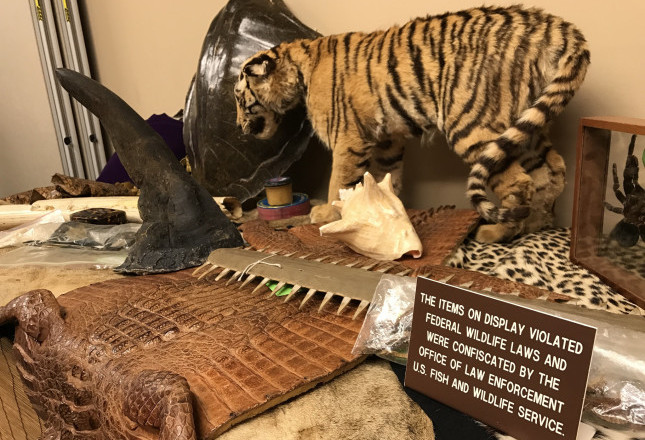-
Stopping Wildlife Trafficking Could Help Strengthen U.S. National Security
March 25, 2019 By Isabella Caltabiano
“The current administration needs to continue to work with nations, nonprofits, and the private sector to halt wildlife poaching, transit, and consumption,” said Chairman of the House Foreign Affairs Committee, Rep. Eliot Engel (D-NY) during his opening remarks at the recent Natural Security Capitol Hill Briefing. He and national security and conservation experts gathered for a panel discussion on how to combat wildlife trafficking and the effects of climate change on national security.
Rep. Engel’s emphasis on America’s national security interest to stop wildlife trafficking set the tone for the discussion on crime, corruption, and instability in wildlife trade. The illegal trade of animal products resembles the drug trade said Louise Shelley, Founder and Director of the Terrorism, Transnational Crime and Corruption Center at George Mason University. Like money from the drug trade, revenues from wildlife trafficking have helped fund militant and terrorist groups. Yet, the people who directly kill these animals often do not benefit in the long run with criminal networks profiting the most, said Shelley.
Tackling poaching and wildlife trafficking requires an understanding of how corruption and criminality can influence unstable countries. For example, Chinese demand for wildlife products has largely driven animal poaching in countries in Central and Eastern Africa that have corruption and weak laws and regulations that allow these illegal actions to proceed. The profits from poaching provide financing for militant groups, corrupt governments, and smuggling networks, ultimately undermining the rule of law and hampering efforts to provide sustainable development and stability in the region.
On the topic of climate and security, moderator and Wilson Center Senior Fellow Sherri Goodman discussed how we live in a time of unprecedented risk from climate change but now also have unprecedented foresight to predict climate effects. Building greater resilience elsewhere can increase U.S. national security. But how can we make communities and ecosystems more resilient to change?
As the world population grows and we become more connected and vulnerable to climate change, one must link economics, security, and the environment rather than address them separately, said Whitley Saumweber, director of the Stephenson Ocean Security Project at the Center for Strategic and International Studies. This approach should be applied to human populations, wildlife trafficking, and other environmental challenges, because they each require the consideration of multiple perspectives for an effective solution. While some progress has been made to mitigate and adapt to climate change as well as combat crime and wildlife trafficking in the short term, Brigadier General Gerald Galloway said that the world is not looking far enough ahead. We are focused on tomorrow, but not the days that follow.
Read more
- China plays a critical role in the global illicit wildlife trade. What is being done to stop it?
- Why the U.S. government cares about wildlife trafficking.
- Bipartisan lawmakers work to strengthen rule of law and prosecutions in the illegal ivory market.
Sources: American Foreign Service Association, Brookings Institute, Center for Climate and Security, New York Times, U.S. Department of State, USAID
Photo Credit: Examples of Wildlife Products Seized by U.S. Fish and Wildlife Service Miami, February 2017. Courtesy of the U.S. Government Accountability Office.
 A Publication of the Stimson Center.
A Publication of the Stimson Center.



